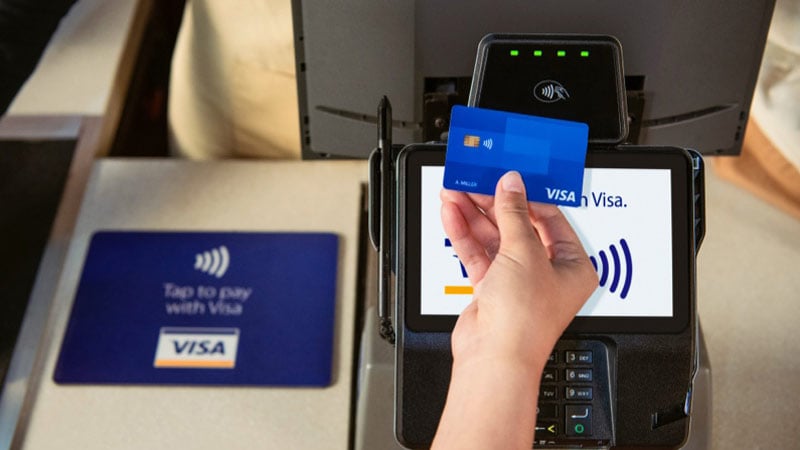Visa (V 1.40%) became a publicly traded company in March 2008. Since then, its shares have had an impressive run, producing a total return of 2,370% (as of Nov. 22). That monster gain crushes the S&P 500.
If we look at the business and the stock today, is Visa a buy, sell, or hold?
The case to buy and hold Visa
Visa has historically been such a successful investment because it's a wonderful company. There are many reasons to appreciate the business, which is precisely what could compel anyone to buy and hold shares.
For starters, Visa has put up solid financial gains for an extended period. The business facilitates the processing of card transactions, with more payment volume being handled as time passes. This growth is propelled by the ongoing decline in cash usage, coupled with consumers and businesses turning to cashless methods. With a 32% share of the global credit card market, Visa is in prime position to keep benefiting.
That has resulted in durable revenue growth. Visa generated $35.9 billion in total sales in fiscal 2024 (ended Sept. 30). That was 56% higher than five years ago. The Wall Street analyst community sees the top line increasing at an annualized 10% pace over the next three years, which is a healthy outlook.
There aren't many companies as profitable as Visa. On $9.6 billion in revenue last quarter, it reported $6.3 billion in operating income, good for a fantastic 66% margin. Operating a global and scaled payments platform is an extremely lucrative business model, with Visa producing $6.4 billion in free cash flow in the quarter.
This allows management to adopt an investor-friendly capital return program. Visa spent $16.7 billion on share repurchases last fiscal year. And it paid $4.2 billion in dividends. The current yield of 0.76% is small, but the quarterly payout has climbed an impressive 392% in the past decade, juicing investor returns.
Another reason to buy and hold Visa is its network effects. The company has a massive two-sided ecosystem, consisting of 4.5 billion cards in circulation and 130 million merchant acceptance locations. The value to each user group is tremendous, given the ubiquity of the network.
This situation makes Visa very difficult for anyone to disrupt. In the last decade or so, we've seen many fintech enterprises rise up the ranks, providing digital wallets and other tools to further digitize payments. But this hasn't stopped Visa from continuing to expand.

NYSE: V
Key Data Points
The case to sell Visa
If I had to find a reason to dump your holdings, it might be the potential for cryptocurrencies to disrupt how money moves around. In particular, stablecoins have promise as a new payment mechanism that is cheaper and faster than the current system. If regulatory actions are supportive of the industry, and if adoption grows, perhaps Visa's business will take a hit.
Of course, it's hard to tell what the state of stablecoins and cryptos will be five or 10 years from now. But investors might be worried about what could happen, even though there is nothing to be concerned with today. It's also worrying when you think about how much attention Visa gets from lawmakers looking to shake up the payments landscape to boost competition.
I believe Visa is one of the best businesses in the world. Its historical performance proves this. And it's hard to overstate Visa's position as a critical aspect for the smooth functioning of commerce.
I don't think the stock's valuation represents a bargain for new buyers, as it trades at a price-to-earnings ratio of 31.9. But because this is a world-class company, perhaps it still makes sense to buy shares, utilizing the strategy of dollar-cost averaging to size up a position.





